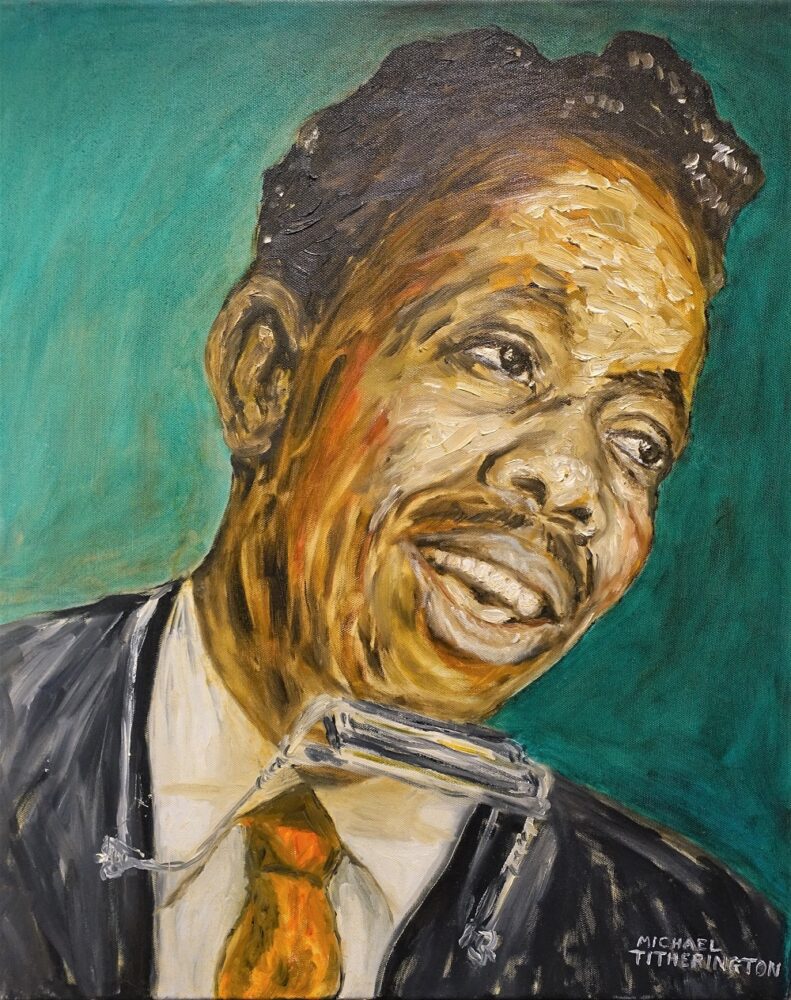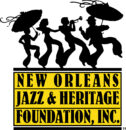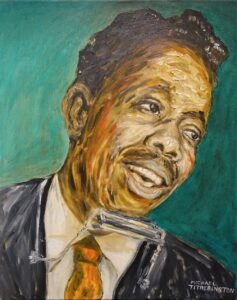Sound Advice
King Bees and Wannabes
The legacy of Slim Harpo
Published: November 30, 2020
Last Updated: February 28, 2021

Michael Titherington
Michael Titherington, Slim Harpo, 2012. Oil on canvas.
“We didn’t want to do blues forever, we just wanted to turn people on to other people who were very good and not carry on doing it ourselves,” Jagger explained to his interviewer. “So you could say that we did blues to turn people on, but why they should be turned on by us is unbelievably stupid. I mean what’s the point in listening to us doing ‘I’m A King Bee’ when you can listen to Slim Harpo doing it?”
The Stones covered Harpo’s “King Bee” on their 1964 debut, released in the United States as England’s Newest Hitmakers. With all respect to Sir Mick Jagger, OBE, there is absolutely a point in listening to both. The Stones have interpreted dozens of blues tunes—and they circled back to that formative influence with 2016’s all-cover Blue and Lonesome—but there’s something about Harpo’s style that seems especially simpatico with Mick’s. The original “King Bee” is a strange, sinuous blues, emphasized by a distinct nasal tone that characterized Harpo’s vocals. There’s an echoey quality to the recording that was a signature of J. D. Miller, whose Crowley, Louisiana, studio produced most of the sound that Harpo is the exemplar of: swamp blues. It’s a hybrid that incorporates high lonesome country, blues, Cajun tinges, and a Caribbean rhythmic bounce that sounds exactly like it should be called swamp. Most swamp blues records were released via the Nashville-based Excello Records label in the late ’50s and early ’60s. In the cover of “King Bee,” Mick takes on some of Slim Harpo’s slinky nasal tone, and he leans into its slithery, exotic groove, its swampy terroir. It feels like a song that the strutting young Englishman was meant to inhabit. That connection is even clearer and cooler on the second Harpo song the Stones took on—the tense, pulsing “Shake Your Hips” that’s a highlight on an album sparking with highlights, 1972’s Exile on Main Street. Harpo didn’t get to judge for himself how Mick did, or enjoy his composition’s presence on one of rock’s most exalted albums. He passed away in 1970, at only forty-five years of age.
Harpo, who was born James Moore, is a strange case, a figure who isn’t quite an unsung hero of Louisiana music—he had a respectable run of chart hits while he was living, including the plaintive perennial classic “Rainin’ in My Heart,” from 1961, and the number-one 1966 R&B hit “Baby Scratch My Back.” (He also was able to hang on to all of the juicy royalties from the Stones’ recording of “King Bee,” since—and this was not how things usually went for a black artist working with white record impresarios—he had kept sole writing credit for the song when he cut it back in 1957.) But he spent most of his brief life sticking around the greater Baton Rouge area, not benefiting much from the blues-revival festival culture of the ’60s, and died before the New Orleans musical infrastructure boom—Jazz Fest, Tipitina’s—of the ’70s, or the Baton Rouge Blues Festival, which started in 1981. He was buried in Mulatto Bend, a neighborhood named for the settlement of free people of color that had thrived there in the eighteenth and nineteenth centuries, in Port Allen, where he’d grown up. For his entire life as an artist, he’d kept day jobs, working in construction or as a mechanic. (Some sources told Harpo’s biographer, Martin Hawkins, that he’d died of a heart attack; others said he’d succumbed to injuries sustained when an engine he was working on fell on his chest.)
The fiftieth anniversary of Harpo’s passing was January 31, 2020. The new millennium has slowly delivered more flowers to his memory, including Hawkins’s 2016 biography, a comprehensive box set released from Bear Family Records in 2015, and a Baton Rouge awards ceremony for blues musicians established in 2003 and named in his honor. In 2008, the Recording Academy inducted “I’m A King Bee” into its Grammy Hall of Fame. The latest star to pay tribute to Harpo is Wynonna Judd, who covers “King Bee” on her EP Recollections, released in October 2020.
https://www.youtube.com/watch?v=NrS5HwjbsBM
A columnist since 2016, Alison Fensterstock has written for 64 Parishes about music, dogs, witches, hippies, and other things.
Sound Advice is funded in part by a grant from the New Orleans Jazz & Heritage Foundation.

